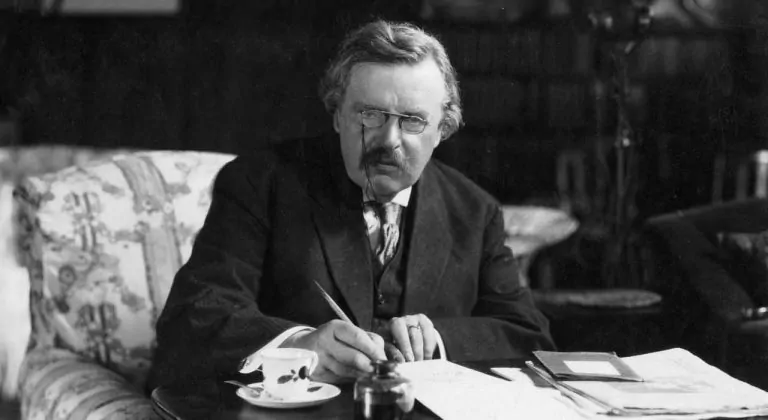As a young man I had questions about how my denomination conducted services:
- Why did we have an organ and the style of music we had?
- Why did we sing so many psalms, and so few hymns?
- Why did we have two services?
- Why did we have Heidelberg Catechism sermons?
- Why did we get so dressed up for services?
And I thought that because I had questions, and because answers were not always at the ready, that clearly meant we should do away with all these practices.
Not so fast
However, just because an answer isn’t easy to come by doesn’t mean it doesn’t exist. And Chesterton had a caution for young guys like me when it came to doing away with old practices – old “fences”:
“In the matter of reforming things, as distinct from deforming them, there is one plain and simple principle; a principle which will probably be called a paradox. There exists in such a case a certain institution or law; let us say, for the sake of simplicity, a fence or gate erected across a road. The more modern type of reformer goes gaily up to it and says, ‘I don’t see the use of this; let us clear it away.’ To which the more intelligent type of reformer will do well to answer: ‘If you don’t see the use of it, I certainly won’t let you clear it away. Go away and think. Then, when you can come back and tell me that you do see the use of it, I may allow you to destroy it.’
“….Some person had some reason for thinking it would be a good thing for somebody. And until we know what the reason was, we really cannot judge whether the reason was reasonable. It is extremely probable that we have overlooked some whole aspect of the question, if something set up by human beings like ourselves seems to be entirely meaningless and mysterious. There are reformers who get over this difficulty by assuming that all their fathers were fools; but if that be so, we can only say that folly appears to be a hereditary disease.” (The Thing, “The Drift From Domesticity”)
Seek out that other side
Now, no denomination is perfect, so there will be practices that could be improved, and maybe some that will need to go. But before any change is made, a properly humble Reformer is going to want to first find out why things are being done this way in the first place. This is living out Prov. 18:17 – only after we hear “both sides” can we then evaluate whether a change is truly needed.












